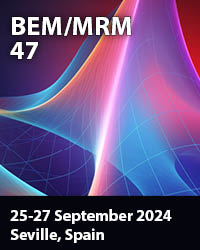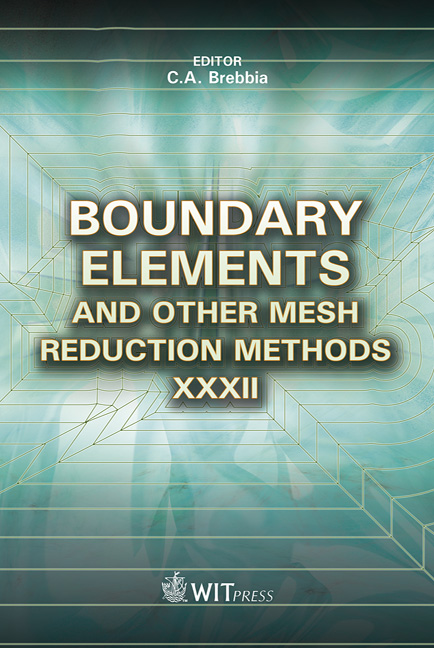Volume Integral Equation Method For The Analysis Of Scattered Waves In An Elastic Half Space
Price
Free (open access)
Transaction
Volume
50
Pages
10
Page Range
251 - 260
Published
2010
Size
1,355 kb
Paper DOI
10.2495/BE100221
Copyright
WIT Press
Author(s)
T. Touhei & K. Kuranami
Abstract
A volume integral equation method for the analysis of scattered elastic waves in a half space is presented. This method introduces the generalized Fourier and its inverse transforms during the Krylov subspace iterative method for obtaining the solutions. The derivation of the coefficient matrix for the integral equation is not required. Furthermore, the introduction of the fast method for the generalized Fourier transform enables us to reduce the large amount of the CPU time, which was observed in the previous article. Numerical calculations are carried out to examine the effects of the fluctuations of the wave field due to the Lam´e constants as well as the mass density on scattered waves. The numerical results are also compared with the results of the Born approximation to check the accuracy of the present method. Keywords: analysis of scattered waves, elastic half space, volume integral equation, generalized Fourier transform, Krylov subspace iterative method. 1 Introduction A type of the volume integral equation known as the Lippmann-Schwinger equation has been an efficient tool for theoretical investigation for the analysis of scattered waves in fields of the quantum mechanics [2] and acoustics [3]. The application of the volume integral equation to numerical analyses, however, is not very easy due to a requirement of a huge scale and dense matrix as a result of the discretization of the equation. Nevertheless, a number of applications of the volume integral equation to scattering problems are increasing. The application fields are extended to elastic wave as well as electro-magnetic wave propagations
Keywords
analysis of scattered waves, elastic half space, volume integral equation, generalized Fourier transform, Krylov subspace iterative method





